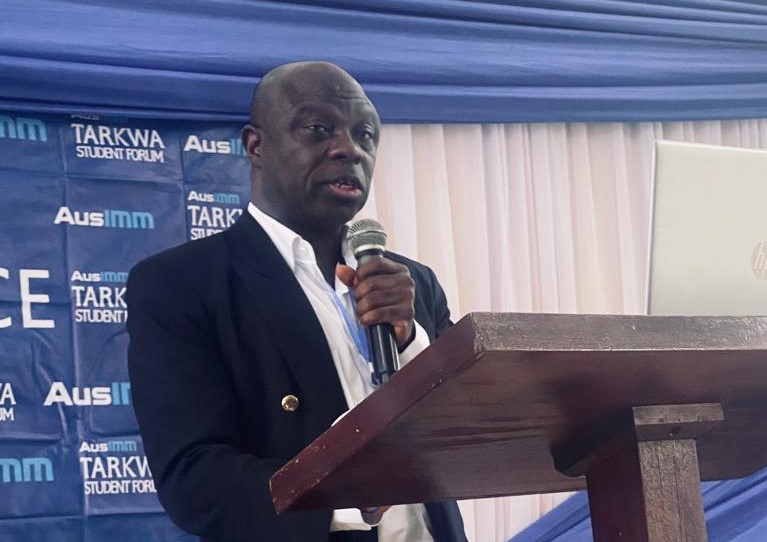By Erica Apeatua Addo
Tarkwa (W/R), Sept. 6, GNA – Mr Henry Antwi, a Mining/Mineral Economics Consultant, says mining companies are facing multiple threats of slowing commodities demand and inflationary pressures.
He said volatile commodity prices, labour insecurity and diminishing ore reserves and grades had put a spotlight on the return on capital employed in mining projects.
Mr Antwi, who is also a fellow of AusIMM, was delivering a lecture at the sixth annual conference of The University of Mines and Technology (UMaT), Tarkwa Chapter of the Australasian Institute of Mining and Metallurgy (AusIMM).
The conference on the theme: “Bridging the gap between academia and industry. A catalyst for a skilled workforce” brought together mining stakeholders to update them on the current state of the global mining industry.
Delivering the keynote address on the topic “Global mining industry dynamics and professional development priorities in a politically challenging world,” Mr Antwi, said a large proportion of African resources remained untapped and provided enormous opportunities for mining investors.

“However African governments need to refine and implement policies and initiatives to maximise the discovery and development of Mines, on a basis which maximises the ongoing economic benefits to communities and investors, without compromising internationally acceptable standards in employment, safety, environmental and other cultural related issues,” he added
On skills development, Mr Antwi mentioned that competition and technology were driving change for relentless restructuring and encouraged mining professionals to adapt and scale up to drive innovations to improve productivity and drive down operating costs.
Touching on the future of mining, the Mining Consultant mentioned revolutionary knowledge applications in artificial intelligence and technology, increased penetration of robotics in process-controlled operations in the logistics and supply business and autonomous mining.
He, therefore, advised universities to modify their course structures to be more technological and programmable courses to skill up their students.
Mr Antwi noted that to unlock the full potential of Ghana’s resources, its policies should focus more on human capital development including bridging the academia and industry gap.
“Government and Industry supports are also required to enhance infrastructure and technology to make universities the pillars for human resource capacity building for the mining sector to ensure that our engineers can innovate and use the right tools and technology to unlock the full potential of mining in Ghana,” he said.
Dr Peter Amponsah-Mensah, the Executive Director, Pamicor Limited, explained that there was a need to open-up industries to supervise internships and attachment for students and faculty in all relevant areas of work culture.
He said, “academia should create executive modular courses to attract working professionals, to partake in as students or lecturers/facilitators. This should address potential educational mismatch and enhance cross fertilisation that provides the pool of change agents needed to attain the commanding heights of the economy”.
He said academia needed to create a differentiated product.
“We have too many ‘me-too’ products and this is not competitive. These may add to the numerous reasons for unemployment for our products. For example, the same courses run by all universities irrespective of location and industry.”
Dr Amponsah-Mensah underscored the urgency for UMaT – School of Railway to metamorphose into a more competitive institution of learning where attractive partnerships would provide the microcosm of the desired learning space with a high return on investment.
Mma Amina Al-Hassan, a Senior Mining Engineer with Anglogold Ashanti Iduapriem Mine, recommended that Universities should involve industry players in the structuring and review of course outlines and stressed the need for industry professionals to take up lecturing roles at the Universities to help bridge the academia and industry gap.
Dr Bright Affum, a Senior Lecturer at UmaT, also spoke on the topic “How academia and industry can work together to fill the skills gap.”
GNA